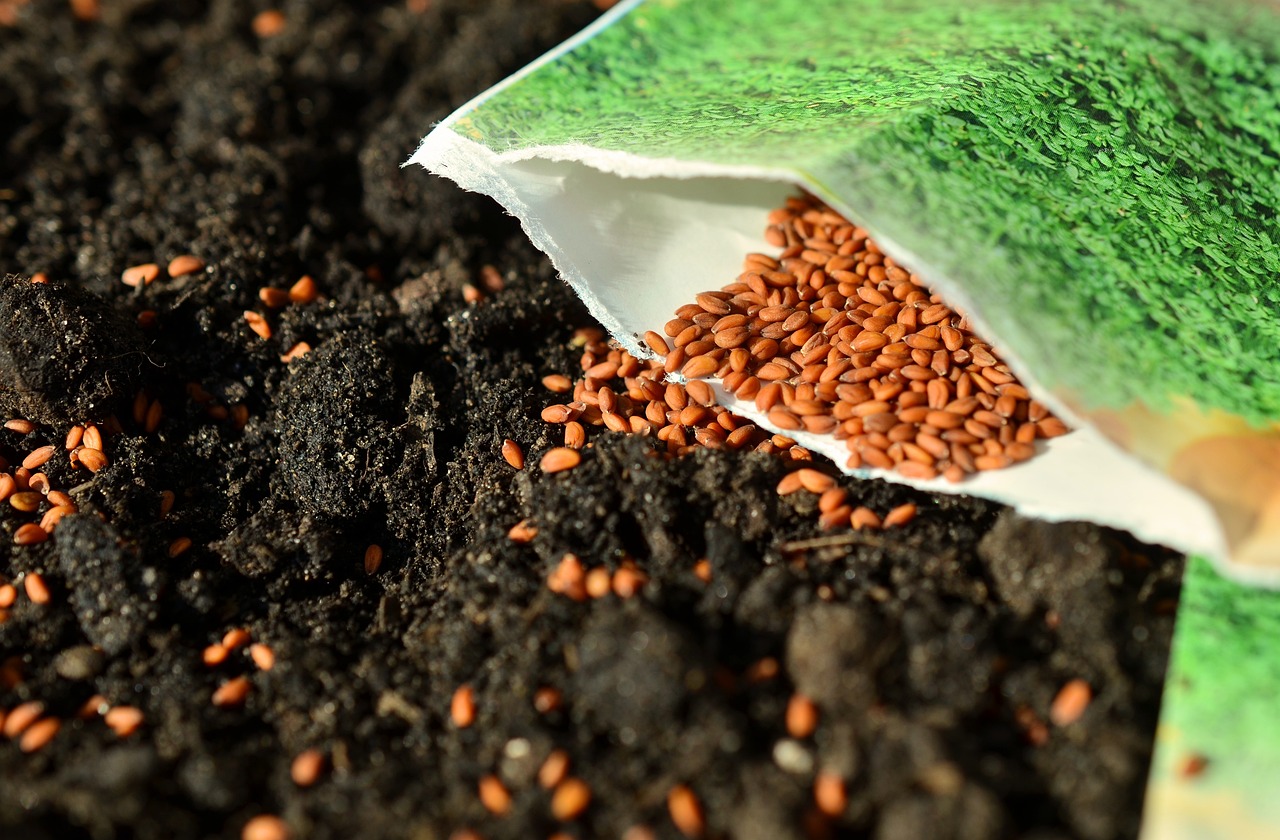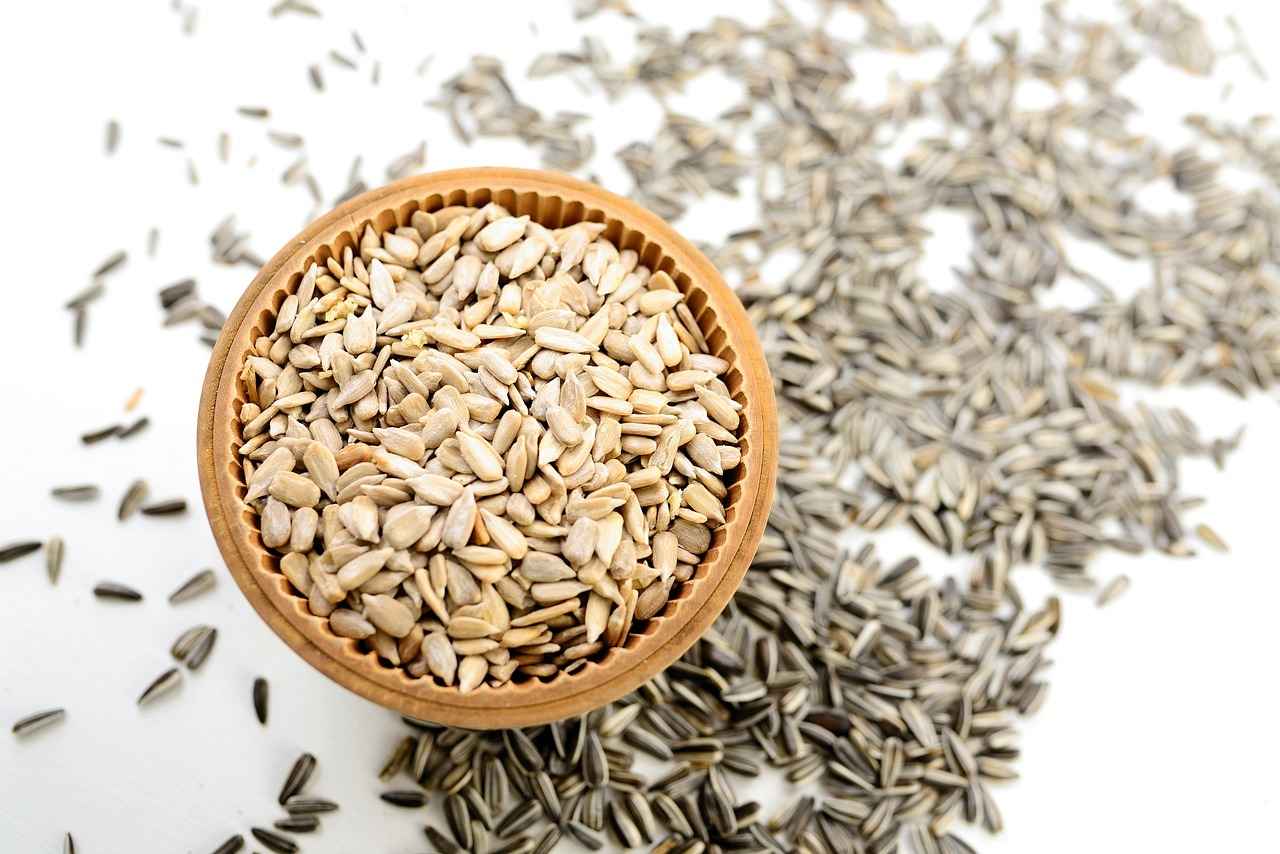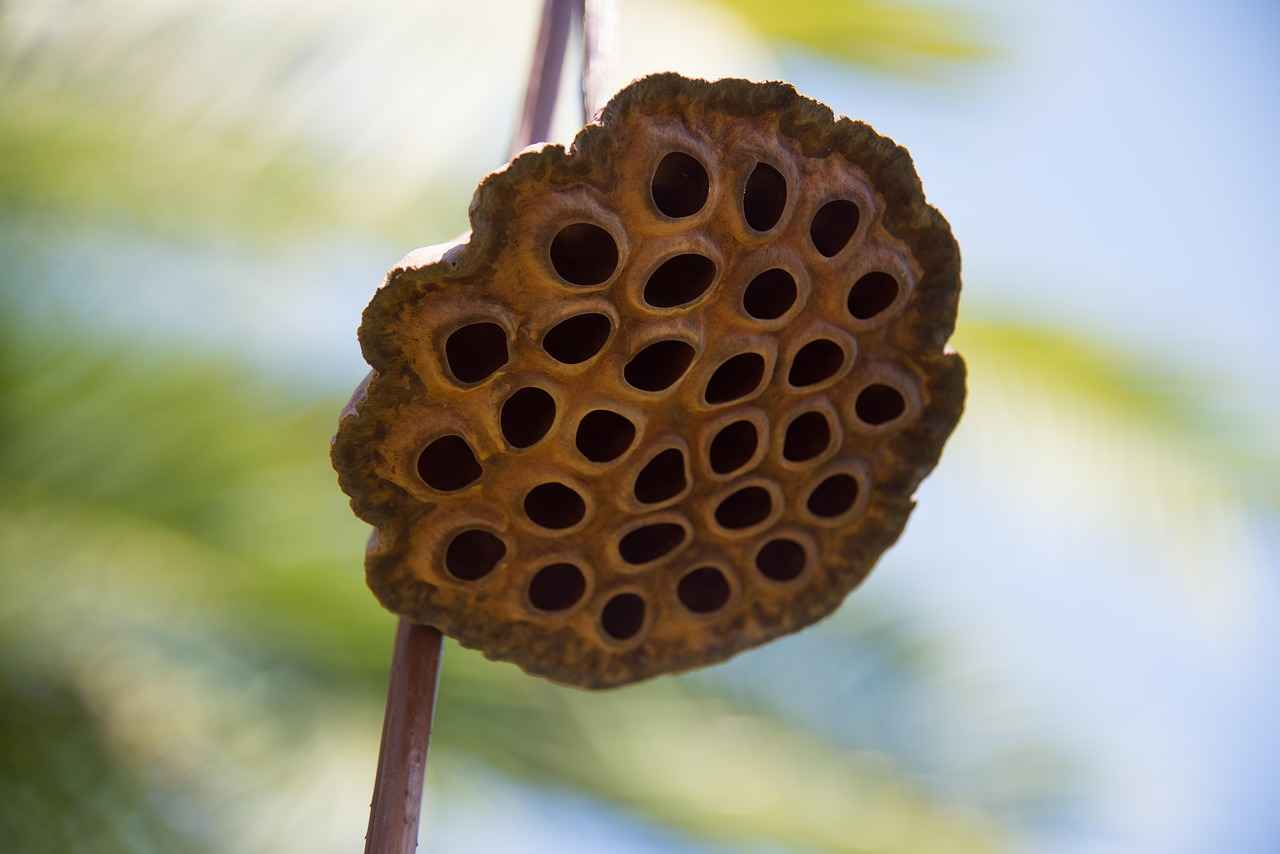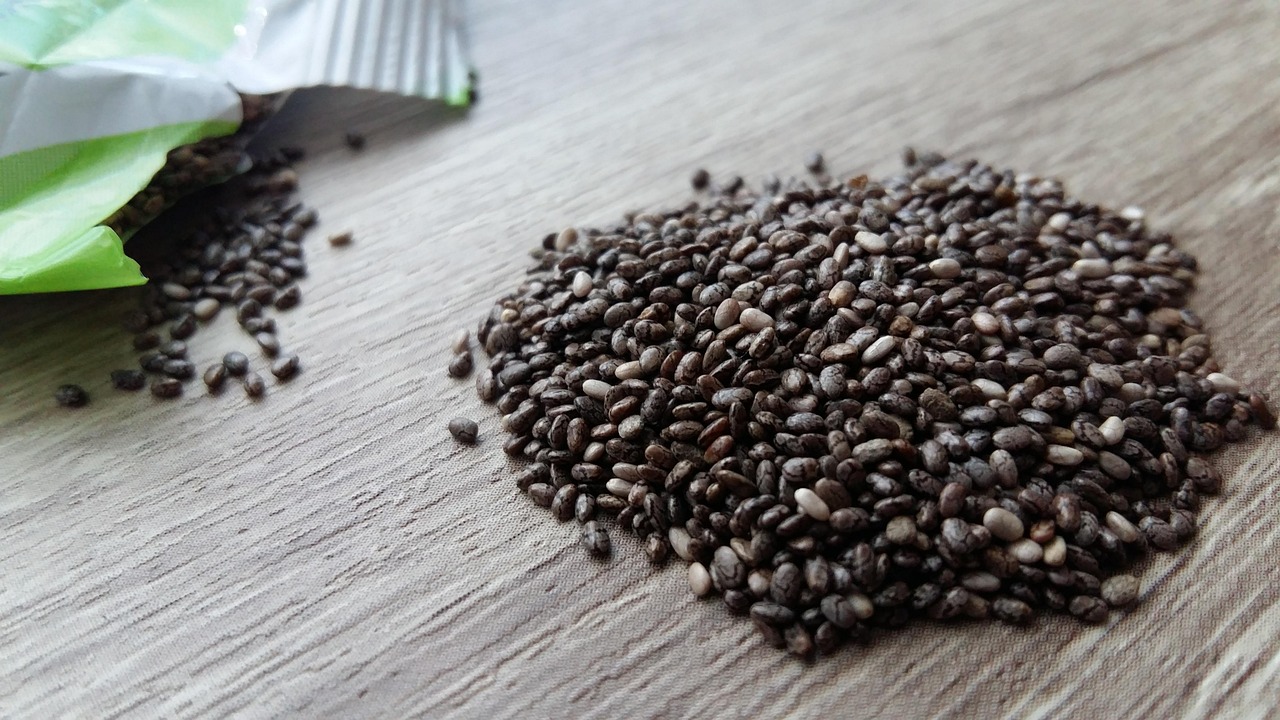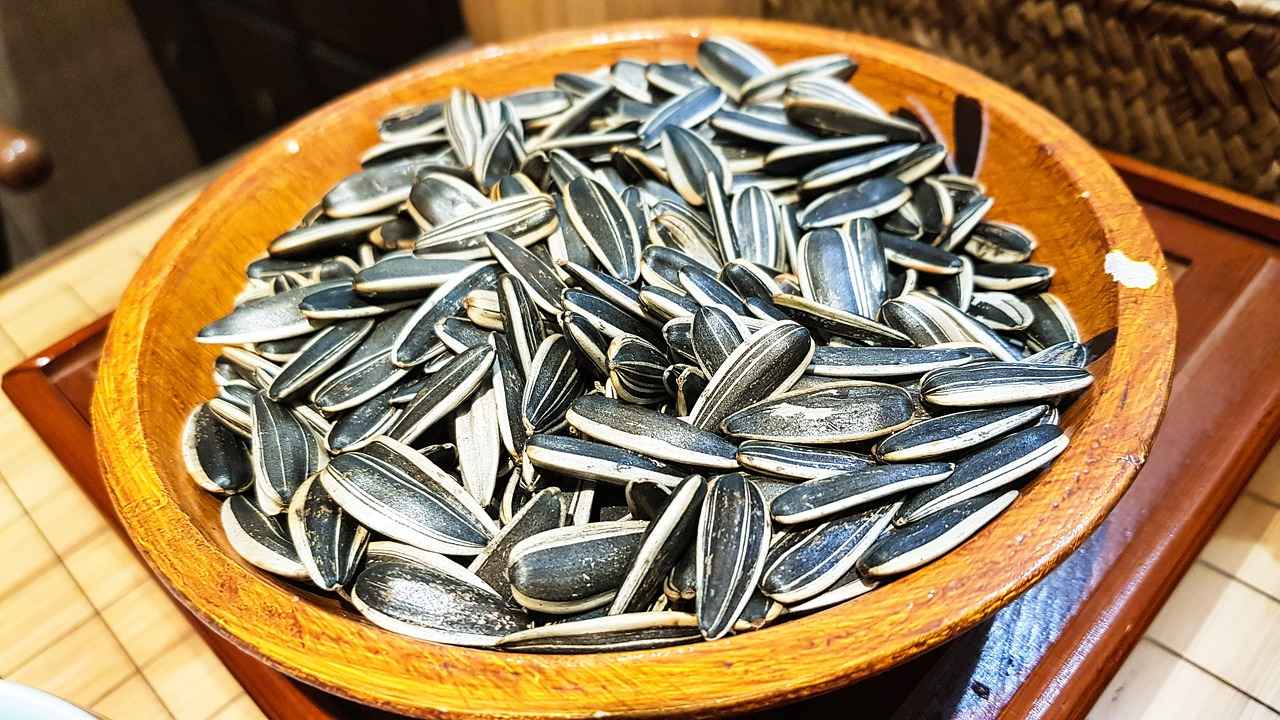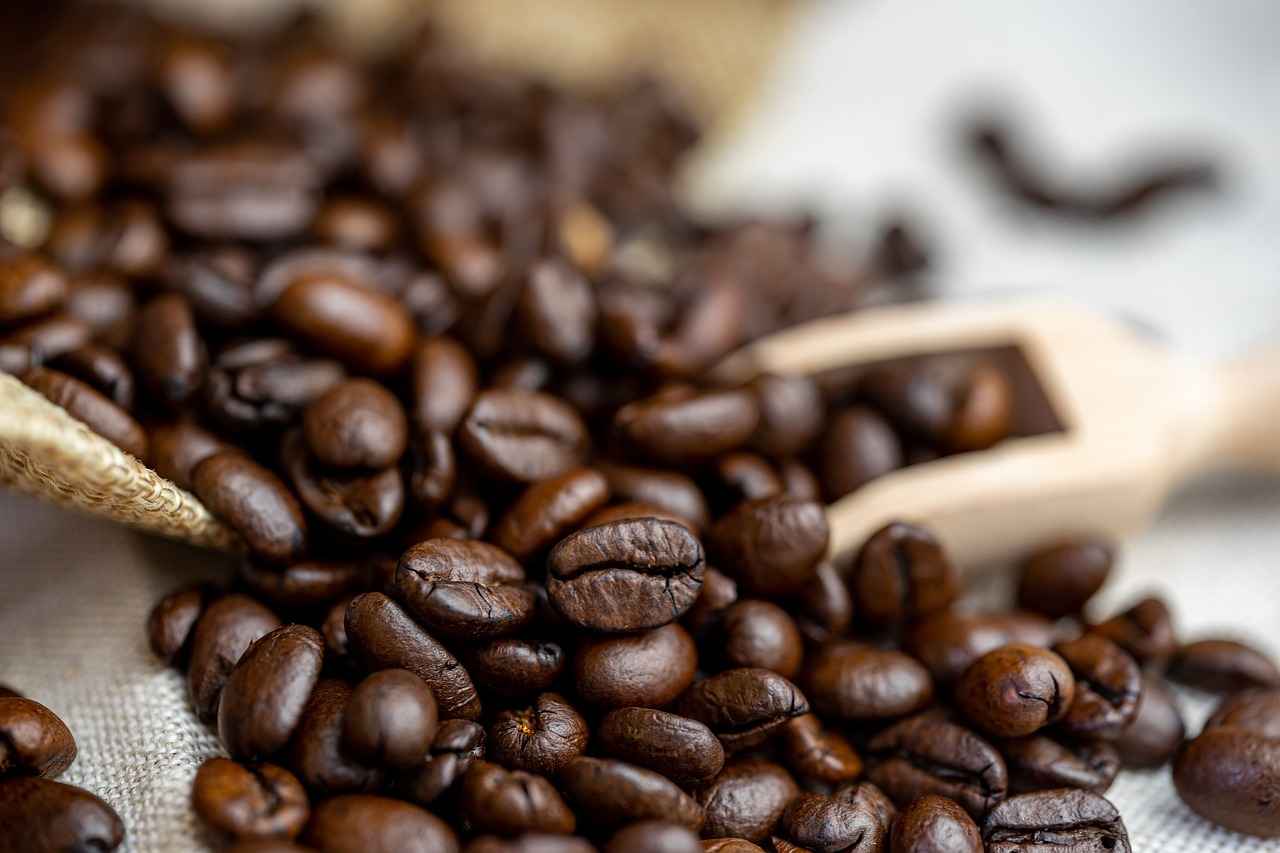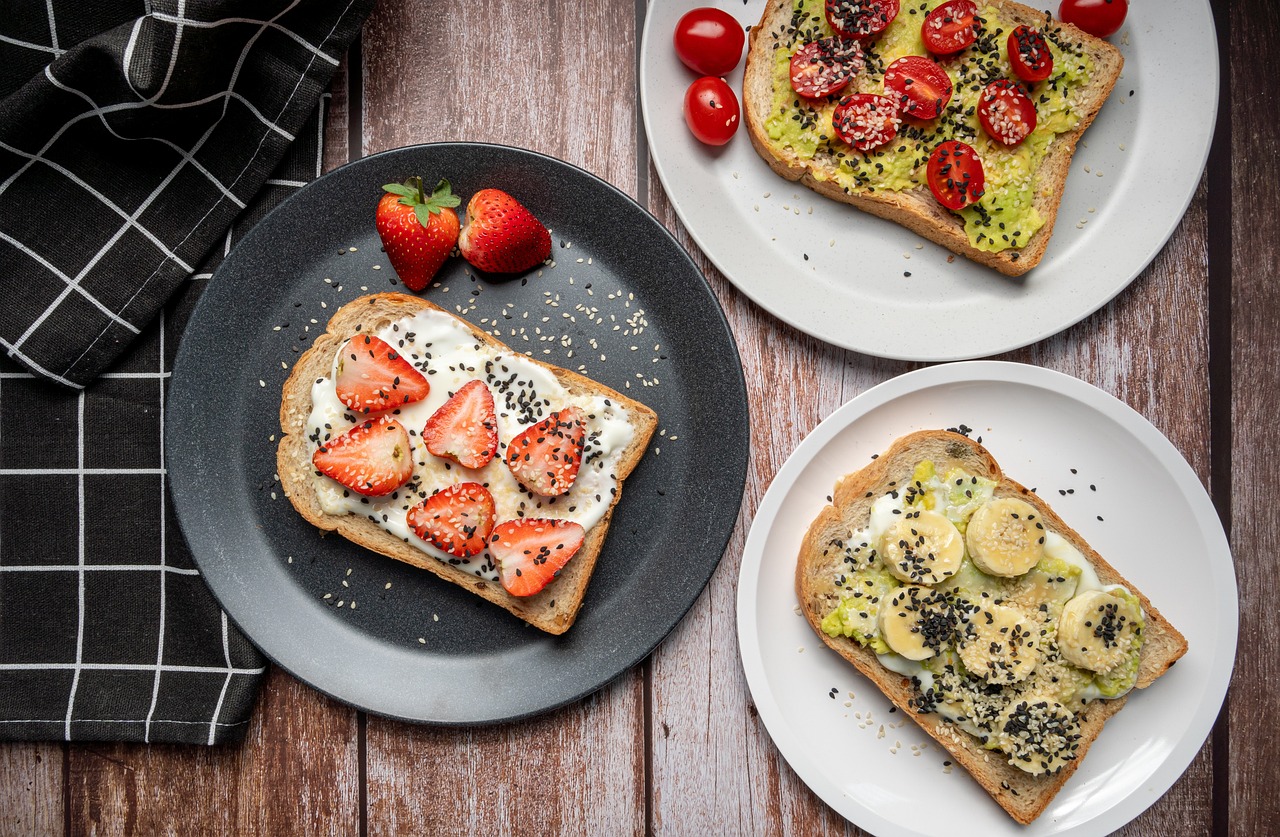Chia seeds have surged in popularity in recent years, celebrated for their impressive nutritional profile and versatility in various dishes. This article delves into the optimal serving size for chia seeds, highlights their potential health benefits, and outlines the risks associated with overconsumption, serving as a comprehensive guide for both health enthusiasts and casual consumers.
Chia seeds are small, black seeds derived from the Salvia hispanica plant, native to Mexico and Guatemala. They are rich in essential nutrients, including omega-3 fatty acids, fiber, and antioxidants. Their unique ability to absorb liquid and form a gel-like consistency makes them a popular ingredient in many health foods.
The increasing popularity of chia seeds can be attributed to their nutritional benefits and versatility. They can be easily incorporated into smoothies, baked goods, and even savory dishes, appealing to a wide range of dietary preferences. Many health-conscious individuals appreciate their ability to enhance meals without adding excessive calories.
The general recommendation for chia seeds is about 1-2 tablespoons per day, which is approximately 15-30 grams. This serving size allows individuals to enjoy the numerous health benefits associated with chia seeds while minimizing the risk of digestive discomfort.
One tablespoon of chia seeds typically weighs around 15 grams. Understanding the weight of chia seeds is crucial for accurately measuring your intake, ensuring you reap the maximum health benefits without exceeding recommended amounts.
While chia seeds are generally safe for consumption, overindulgence can lead to digestive discomfort, including bloating, gas, and even constipation. The high fiber content in chia seeds can be overwhelming for some, particularly if they are not used to a fiber-rich diet. Therefore, it is essential to be mindful of your intake and gradually incorporate them into your meals.
Chia seeds offer a myriad of health benefits, including:
- Improved Digestion: Their high fiber content promotes regular bowel movements.
- Heart Health: Rich in omega-3 fatty acids, chia seeds can help reduce inflammation and lower cholesterol levels.
- Weight Management: They can aid in weight loss by promoting a feeling of fullness, which helps control appetite.
Yes, chia seeds are one of the richest plant sources of omega-3 fatty acids. These healthy fats are crucial for maintaining heart health and reducing inflammation, making chia seeds a valuable addition to a balanced diet.
Chia seeds can be beneficial for weight loss due to their high fiber content, which helps you feel full longer. This property can assist in controlling appetite and reducing overall calorie intake, making them an excellent choice for those looking to manage their weight.
Incorporating chia seeds into your diet is simple and versatile. They can be added to:
- Smoothies
- Yogurt
- Oatmeal
- Baked goods
This not only enhances the nutritional value of your meals but also adds a unique texture.
Chia seeds can be used in various delicious recipes, such as:
- Chia Pudding: Combine chia seeds with almond milk and let them soak overnight for a nutritious breakfast.
- Smoothies: Blend chia seeds into your favorite smoothie for added fiber and protein.
- Energy Bars: Incorporate chia seeds into homemade energy bars for a healthy snack option.
Yes, chia seeds can be consumed raw. However, soaking them in liquid is recommended to improve digestion and nutrient absorption. This method also enhances their gel-like texture, making them more palatable and easier to digest.

What Are Chia Seeds?
Chia seeds are tiny, nutrient-dense seeds derived from the Salvia hispanica plant, which belongs to the mint family. These seeds have gained immense popularity in recent years, primarily due to their remarkable health benefits and versatility in various culinary applications. Originating from Central America, chia seeds were a staple food for the ancient Aztecs and Mayans, who valued them for their energy-boosting properties. Today, they are recognized as a superfood, rich in essential nutrients.
Chia seeds are packed with an impressive array of nutrients, making them an excellent addition to any diet. They are particularly known for their high content of omega-3 fatty acids, which are essential for heart health and reducing inflammation. Additionally, they are a great source of dietary fiber, providing about 11 grams of fiber per ounce. This high fiber content not only aids in digestion but also contributes to a feeling of fullness, which can help with weight management.
With the rise of health consciousness among consumers, chia seeds have become a popular choice for those seeking nutritious food options. Their ability to absorb liquid and form a gel-like consistency makes them a versatile ingredient in various recipes. Whether added to smoothies, yogurt, or baked goods, chia seeds enhance both the nutritional profile and texture of meals. Furthermore, their long shelf life and ease of use contribute to their widespread appeal.
The recommended serving size for chia seeds is typically 1-2 tablespoons per day. This amount provides sufficient nutrients without overwhelming the digestive system. It’s important to note that chia seeds can absorb up to 12 times their weight in water, so it’s advisable to consume them with adequate liquid to avoid any digestive discomfort.
Chia seeds offer a multitude of health benefits, including:
- Improved digestion: The high fiber content aids in regular bowel movements and promotes gut health.
- Heart health: Omega-3 fatty acids help reduce cholesterol levels and lower the risk of heart disease.
- Weight management: The gel-like texture of soaked chia seeds can help control appetite and reduce overall calorie intake.
Yes, chia seeds are one of the richest plant sources of omega-3 fatty acids, specifically alpha-linolenic acid (ALA). These fatty acids are crucial for maintaining heart health and may also play a role in reducing inflammation throughout the body.
Chia seeds can be beneficial for those looking to lose weight. Their high fiber content promotes a feeling of fullness, which can help curb cravings and reduce overall calorie intake. Additionally, the gel-like consistency formed when chia seeds are soaked can slow down the digestion of food, leading to longer-lasting satiety.
Incorporating chia seeds into your diet is simple and enjoyable. Here are some practical ways to add them:
- Add them to smoothies for a nutritional boost.
- Mix them into yogurt or oatmeal for added texture and fiber.
- Use them in baking, such as in muffins or energy bars.
Yes, chia seeds can be consumed raw. However, it is recommended to soak them in liquid before consumption to enhance digestion and nutrient absorption. Soaking not only improves their digestibility but also gives them a unique gel-like texture that can be used in various recipes.
In summary, chia seeds are a powerhouse of nutrition, offering numerous health benefits and versatility in culinary applications. Their rich history and impressive nutrient profile make them a valuable addition to any diet.
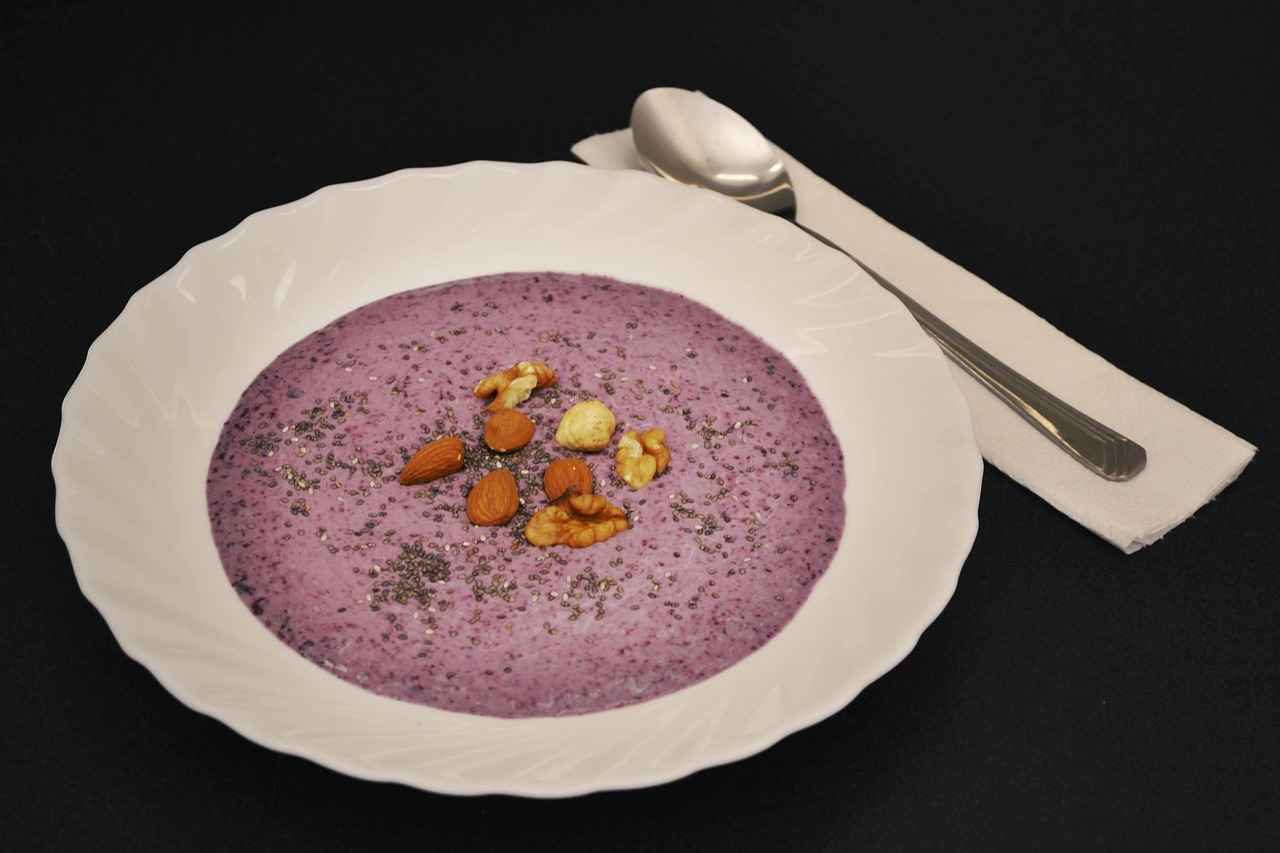
Why Are Chia Seeds Popular?
Chia seeds have surged in popularity over recent years, and for good reason. These tiny, nutrient-dense seeds are not only versatile but also offer a range of health benefits that appeal to a wide audience. As more people become health-conscious, the demand for superfoods like chia seeds has increased, making them a staple in many diets.
Chia seeds are derived from the Salvia hispanica plant and are packed with essential nutrients. They are an excellent source of omega-3 fatty acids, which play a vital role in heart health and reducing inflammation. Additionally, they are rich in fiber, which aids digestion and promotes a feeling of fullness, making them an excellent choice for those looking to manage their weight.
- Vegan and Vegetarian Diets: Chia seeds are a fantastic source of plant-based protein and omega-3s, making them an ideal addition to vegan and vegetarian diets.
- Gluten-Free Diets: Naturally gluten-free, chia seeds can be incorporated into various recipes, providing texture and nutrition without gluten.
- Paleo and Keto Diets: Their low carbohydrate content and high fiber make chia seeds a great fit for paleo and keto lifestyles.
Chia seeds are celebrated for their numerous health benefits. They can help improve digestion due to their high fiber content, which promotes regular bowel movements. Furthermore, their ability to absorb water helps keep you hydrated and can aid in controlling appetite, making them a popular choice for those looking to lose weight.
Absolutely! Chia seeds are incredibly versatile and can be easily added to various dishes. They can be sprinkled on salads, blended into smoothies, or mixed into oatmeal. Additionally, they can be used to make chia pudding, a popular breakfast option that is both nutritious and delicious.
While chia seeds are generally safe for most people, it’s essential to be mindful of portion sizes. Consuming too many chia seeds can lead to digestive issues such as bloating or gas. The recommended serving size is about 1-2 tablespoons per day. It’s also crucial to consume them with adequate liquid, as they expand and absorb water.
When compared to other superfoods, chia seeds stand out due to their unique combination of nutrients. Unlike many seeds and nuts, chia seeds are low in calories while being high in fiber, protein, and healthy fats. This makes them an excellent choice for anyone looking to enhance their diet without significantly increasing calorie intake.
Yes! Chia seeds can be used in a variety of delicious recipes. Some popular options include:
- Chia Pudding: Mix chia seeds with almond milk and let them soak overnight for a creamy breakfast treat.
- Chia Seed Jam: Combine chia seeds with your favorite fruit for a healthy, homemade jam.
- Energy Bars: Incorporate chia seeds into homemade energy bars for a nutritious snack on the go.
In summary, the rising popularity of chia seeds is attributed to their impressive nutritional profile, versatility in various diets, and numerous health benefits. As more individuals seek healthier lifestyle choices, chia seeds are likely to remain a favored ingredient in kitchens around the world.
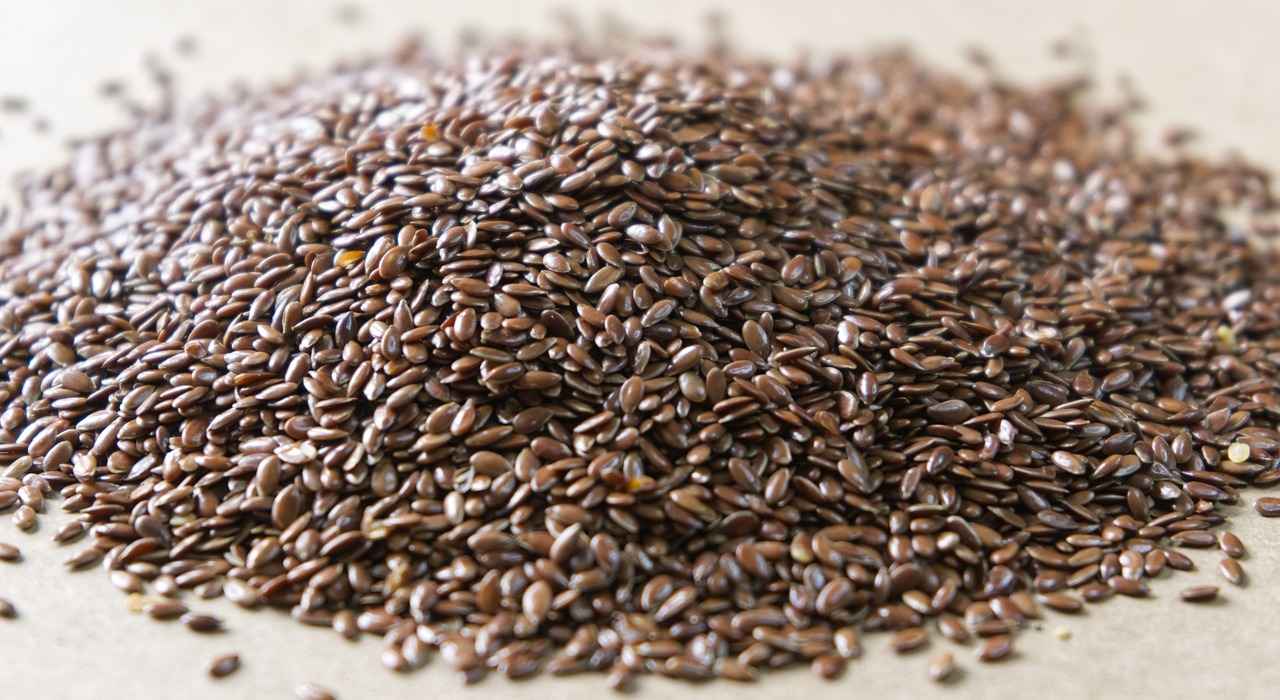
What Is the Recommended Serving Size for Chia Seeds?
Chia seeds have become a staple in health-conscious diets, known for their impressive nutritional profile. However, many people wonder about the appropriate serving size to maximize their benefits while avoiding potential side effects. The general recommendation for chia seeds is about 1-2 tablespoons per day. This quantity provides a wealth of health advantages without leading to excessive calorie intake or digestive discomfort.
Chia seeds are incredibly nutrient-dense, containing a high amount of omega-3 fatty acids, fiber, protein, and various essential minerals. Consuming 1-2 tablespoons, which is approximately 15-30 grams, allows you to reap the benefits of these nutrients effectively. This serving size is sufficient to support your daily nutritional needs without overwhelming your digestive system.
- Digestive Health: Chia seeds are rich in fiber, which can promote healthy digestion. However, consuming too many at once can lead to bloating, gas, or even constipation.
- Caloric Intake: While chia seeds are healthy, they are also calorie-dense. Sticking to the recommended serving helps manage your overall caloric intake, especially if you are monitoring your weight.
- Nutrient Absorption: Eating the right amount ensures that your body can absorb the nutrients effectively without being overloaded.
To ensure you are consuming the right amount, it’s essential to measure chia seeds accurately. One tablespoon of chia seeds typically weighs around 15 grams. If you prefer to use grams for precision, consider using a kitchen scale to weigh out your servings.
While chia seeds are generally safe for most people, consuming them in excess can lead to adverse effects. Some potential risks include:
- Gastrointestinal Issues: Overeating chia seeds can result in digestive issues, including bloating, cramping, and diarrhea.
- Choking Hazard: Chia seeds can absorb a significant amount of liquid and expand. If consumed dry, they may pose a choking hazard, especially for those with swallowing difficulties.
To make the most of your chia seed intake, consider the following tips:
- Soak Before Consumption: Soaking chia seeds in water or another liquid before consumption can enhance their digestibility and nutrient absorption.
- Incorporate into Meals: Add chia seeds to smoothies, oatmeal, or yogurt for a nutritious boost.
- Experiment with Recipes: Chia seeds can be used in various recipes, such as puddings and energy bars, making it easy to include them in your diet.
In summary, the recommended serving size of 1-2 tablespoons of chia seeds per day is a practical guideline for most individuals. This amount allows you to enjoy the numerous health benefits associated with chia seeds while minimizing the risk of digestive discomfort. By being mindful of your serving size and incorporating chia seeds into your meals creatively, you can enhance your overall health and well-being.
How Many Grams Are in a Tablespoon of Chia Seeds?
Chia seeds have become increasingly popular in the health and wellness community due to their impressive nutritional profile. These tiny seeds pack a powerful punch when it comes to health benefits, making them a staple in many diets. Understanding the serving size and weight of chia seeds is crucial for maximizing their potential benefits while avoiding overconsumption.
One tablespoon of chia seeds typically weighs around 15 grams. This knowledge is essential for accurately measuring your intake, ensuring you reap the optimal health benefits without consuming excessive calories. By using a kitchen scale or measuring spoons, you can maintain a consistent serving size that fits within your dietary needs.
Understanding serving size is vital for anyone looking to incorporate chia seeds into their diet effectively. While they are nutrient-dense, consuming them in moderation is key to avoiding potential digestive issues. The recommended serving size of 1-2 tablespoons per day allows you to enjoy the benefits without overwhelming your digestive system.
- Rich in Omega-3 Fatty Acids: Chia seeds are one of the best plant-based sources of omega-3s, which are essential for heart health.
- High in Fiber: The fiber content in chia seeds promotes digestive health and helps maintain a feeling of fullness.
- Loaded with Antioxidants: These seeds contain antioxidants that can help combat oxidative stress in the body.
While chia seeds are healthy, consuming too many can lead to digestive discomfort, such as bloating and gas. This is particularly true if you are not accustomed to a high-fiber diet. It’s important to gradually introduce chia seeds into your meals and drink plenty of water to aid digestion.
To ensure you are measuring your chia seeds accurately, consider using a digital kitchen scale. This method provides precise measurements, allowing you to keep track of your daily intake effectively. If you prefer using measuring spoons, remember that 1 tablespoon equals approximately 15 grams. Consistency in measurement will help you achieve the desired health benefits.
Incorporating chia seeds into your meals is simple and versatile. Here are some ideas:
- Add chia seeds to smoothies for an extra nutrient boost.
- Mix them into yogurt or oatmeal for added texture and health benefits.
- Use chia seeds in baking recipes to enhance the nutritional profile of your baked goods.
Yes, chia seeds can be consumed raw. However, it is recommended to soak them in liquid before consumption. Soaking chia seeds not only improves their digestibility but also enhances their gel-like texture, making them more enjoyable to eat.
In summary, understanding the weight of chia seeds and their proper serving size is crucial for maximizing their health benefits. By adhering to the recommended daily intake and incorporating them thoughtfully into your meals, you can enjoy the numerous advantages that chia seeds offer.
What Happens If You Eat Too Many Chia Seeds?
Chia seeds have become a popular superfood, celebrated for their numerous health benefits and versatility in various diets. However, like any food, moderation is key. Understanding the implications of overconsumption is essential for anyone looking to incorporate these tiny seeds into their daily routine.
While chia seeds are packed with nutrients, consuming them in excess can lead to several adverse effects, particularly on your digestive system. One of the most common issues reported by individuals who overindulge in chia seeds is digestive discomfort, which can manifest as bloating, gas, and even abdominal pain.
The primary reason for these symptoms is the high fiber content found in chia seeds. A single serving (about 1-2 tablespoons) contains a significant amount of fiber, which is beneficial for digestion when consumed in moderation. However, exceeding this recommended amount can overwhelm the digestive system, leading to unpleasant side effects.
- Fiber Overload: Chia seeds are rich in both soluble and insoluble fiber. While fiber is essential for gut health, too much can lead to constipation or diarrhea.
- Absorption of Water: When chia seeds are consumed dry, they absorb liquid in the stomach, expanding significantly. This can cause a feeling of fullness and discomfort if consumed in large quantities without adequate hydration.
- Gastrointestinal Sensitivity: Some individuals may have a more sensitive digestive system, making them more prone to experiencing gas and bloating after consuming even a moderate amount of chia seeds.
To enjoy the health benefits of chia seeds without the unpleasant side effects, consider the following tips:
- Start Small: If you’re new to chia seeds, begin with a smaller serving size, such as 1 teaspoon, and gradually increase it as your body adjusts.
- Soak Before Eating: Soaking chia seeds in water or another liquid before consumption can help to reduce their potential to cause bloating. This process allows them to expand and become gel-like, making them easier to digest.
- Stay Hydrated: Ensure you drink plenty of water throughout the day, especially when consuming fiber-rich foods like chia seeds. This helps to facilitate digestion and prevent constipation.
It’s crucial to recognize the signs of overconsumption early to mitigate discomfort:
- Bloating: A common sign that your body is struggling to process the fiber overload.
- Gas: Excessive gas can indicate that your digestive system is having difficulty breaking down the seeds.
- Stomach Cramps: Persistent abdominal pain may suggest that your body is reacting negatively to the high fiber intake.
In conclusion, while chia seeds are a nutritious addition to your diet, being aware of the potential for digestive discomfort is essential. By practicing moderation and following the tips outlined above, you can enjoy the numerous health benefits of chia seeds without the unpleasant side effects. Remember, listening to your body and adjusting your intake accordingly is key to a healthy and balanced diet.

How Do Chia Seeds Benefit Your Health?
Chia seeds, derived from the Salvia hispanica plant, are small yet powerful seeds that have gained immense popularity in recent years. Their impressive nutritional profile makes them a staple in many health-conscious diets. But what exactly are the health benefits of these tiny seeds? Let’s explore the various ways chia seeds can positively impact your well-being.
One of the most significant advantages of chia seeds is their ability to enhance digestion. These seeds are rich in dietary fiber, with a single ounce (about 28 grams) containing approximately 11 grams of fiber. This high fiber content aids in maintaining a healthy digestive system by promoting regular bowel movements and preventing constipation. Furthermore, chia seeds can absorb up to 12 times their weight in water, forming a gel-like substance that helps to keep you feeling full and satisfied.
Chia seeds are also celebrated for their positive effects on heart health. They are an excellent source of omega-3 fatty acids, particularly alpha-linolenic acid (ALA), which is known to reduce inflammation and lower the risk of heart disease. Regular consumption of chia seeds can help lower blood pressure, reduce cholesterol levels, and improve overall cardiovascular health. Incorporating these seeds into your diet can be a simple yet effective way to support your heart.
For those looking to manage their weight, chia seeds can be a valuable ally. Their high fiber content promotes a sense of fullness, which can help control appetite and reduce overall calorie intake. When consumed, chia seeds expand in the stomach, making you feel satisfied longer. This natural appetite control can be particularly beneficial for individuals trying to lose or maintain weight.
Chia seeds are also a great source of essential minerals that contribute to bone health. They are rich in calcium, phosphorus, and magnesium, which are crucial for maintaining strong bones and preventing osteoporosis. Just two tablespoons of chia seeds provide about 18% of the recommended daily intake of calcium, making them an excellent addition to a bone-healthy diet.
Another remarkable benefit of chia seeds is their high antioxidant content. Antioxidants help combat oxidative stress and protect the body from free radicals, which can lead to chronic diseases. By including chia seeds in your meals, you can boost your antioxidant intake and support your body’s defense mechanisms.
Incorporating chia seeds into your diet is easy and versatile. Here are some practical ways to enjoy their benefits:
- Add them to smoothies for a nutrient boost.
- Mix them into yogurt or oatmeal for added texture and fiber.
- Use them in baking recipes, such as muffins or breads.
- Prepare chia pudding by soaking them in milk or a dairy-free alternative.
While chia seeds are generally safe for most people, it’s essential to consume them in moderation. Overconsumption can lead to digestive issues such as bloating or gas. It’s advisable to start with small amounts and gradually increase your intake to allow your digestive system to adjust.
In conclusion, chia seeds are a powerhouse of nutrition, offering numerous health benefits ranging from improved digestion and heart health to effective weight management. By incorporating these tiny seeds into your diet, you can enhance your overall well-being and enjoy a delicious addition to your meals.
Are Chia Seeds a Good Source of Omega-3 Fatty Acids?
Chia seeds have garnered significant attention in the health and wellness community, primarily due to their impressive nutritional profile. Among their many benefits, one of the standout features is their high content of omega-3 fatty acids. These essential fats play a critical role in maintaining overall health, particularly for the heart and brain.
Omega-3 fatty acids are vital for various bodily functions and are known for their anti-inflammatory properties. They help to lower blood pressure, reduce triglycerides, and decrease the risk of heart disease. The fact that chia seeds are one of the richest plant sources of these fatty acids makes them an excellent choice for those seeking to improve their cardiovascular health.
In terms of nutritional content, a typical serving of chia seeds (about 28 grams or 2 tablespoons) contains approximately 5 grams of omega-3 fatty acids. This amount is significant, especially when you consider that many people struggle to meet their daily omega-3 requirements through diet alone. For individuals following a vegetarian or vegan diet, chia seeds offer a plant-based alternative to fish, which is often the go-to source for omega-3s.
Moreover, chia seeds contain two types of omega-3 fatty acids: alpha-linolenic acid (ALA) and docosahexaenoic acid (DHA). ALA is the plant-based form found in chia seeds, while DHA is primarily found in fish. The body can convert ALA to DHA, but this process is not very efficient. Therefore, while chia seeds are a fantastic source of omega-3s, it’s essential to consider a balanced diet that includes various sources of these fatty acids.
In addition to omega-3s, chia seeds are rich in fiber, protein, and antioxidants, making them a nutrient-dense addition to any diet. Their high fiber content not only helps with digestion but also aids in maintaining a healthy weight by promoting a feeling of fullness. This makes chia seeds an appealing option for those looking to manage their weight while still ensuring they receive essential nutrients.
Many people wonder how to incorporate chia seeds into their daily diet. The good news is that they are incredibly versatile. You can easily add them to smoothies, sprinkle them on salads, or mix them into yogurt and oatmeal. Soaking chia seeds in water or milk can create a gel-like consistency, perfect for making puddings or as a thickening agent in various recipes.
However, it’s essential to consume chia seeds in moderation. While they offer numerous health benefits, overconsumption can lead to digestive issues such as bloating or gas. The recommended serving size is about 1-2 tablespoons per day, which provides ample omega-3 fatty acids without overwhelming your digestive system.
In summary, chia seeds are indeed a good source of omega-3 fatty acids, offering numerous health benefits that can enhance your overall well-being. Their rich nutrient profile, coupled with their versatility in the kitchen, makes them an excellent addition to a balanced diet. Whether you are a health enthusiast or someone looking to improve your diet, incorporating chia seeds can be a simple yet effective way to boost your omega-3 intake.
Can Chia Seeds Help with Weight Loss?
Chia seeds have gained significant attention in the health community, particularly for their potential role in weight loss. These tiny seeds, derived from the Salvia hispanica plant, are not only rich in nutrients but also possess unique properties that can aid in managing weight effectively.
One of the primary reasons chia seeds are considered beneficial for weight loss is their high fiber content. Each serving of chia seeds contains about 10 grams of fiber, which is essential for promoting a feeling of fullness. When chia seeds are mixed with liquid, they can absorb up to 12 times their weight, forming a gel-like substance. This gel formation slows down digestion, allowing for a prolonged sensation of satiety, which can help control appetite and reduce overall calorie intake.
By incorporating chia seeds into your diet, you may find it easier to resist unhealthy snacks and overeating. The gel-like consistency created when chia seeds are soaked can lead to a slower release of nutrients into the bloodstream, stabilizing blood sugar levels and preventing spikes that trigger hunger. This steady release of energy can help manage cravings, making it easier to stick to a healthy eating plan.
Integrating chia seeds into meals can be simple and delicious. They can be added to smoothies, salads, and baked goods, enhancing both the nutritional profile and texture of dishes. For example, adding a tablespoon of chia seeds to your morning smoothie not only boosts fiber intake but also provides a source of omega-3 fatty acids, which are beneficial for overall health.
In addition to aiding weight loss, chia seeds offer several other health benefits. They are an excellent source of antioxidants, which can help combat oxidative stress in the body. Furthermore, their high calcium and magnesium content supports bone health, while their protein content can contribute to muscle maintenance and growth.
While chia seeds are generally safe for most individuals, it is crucial to consume them in moderation. Overeating chia seeds can lead to digestive discomfort, such as bloating and gas, particularly if they are not consumed with adequate liquid. It is recommended to start with small amounts and gradually increase intake to allow your body to adjust.
The recommended serving size for chia seeds is about 1-2 tablespoons per day. This quantity provides sufficient fiber and nutrients without excessive calorie intake. By sticking to this serving size, you can enjoy the benefits of chia seeds while minimizing the risk of digestive issues.
In conclusion, chia seeds can be a valuable addition to your weight loss journey. Their ability to promote satiety, control appetite, and provide essential nutrients makes them an excellent choice for health enthusiasts. By incorporating them into a balanced diet and maintaining moderation, you can harness their benefits effectively. Remember to consult with a healthcare professional or a nutritionist if you have specific dietary concerns or conditions.
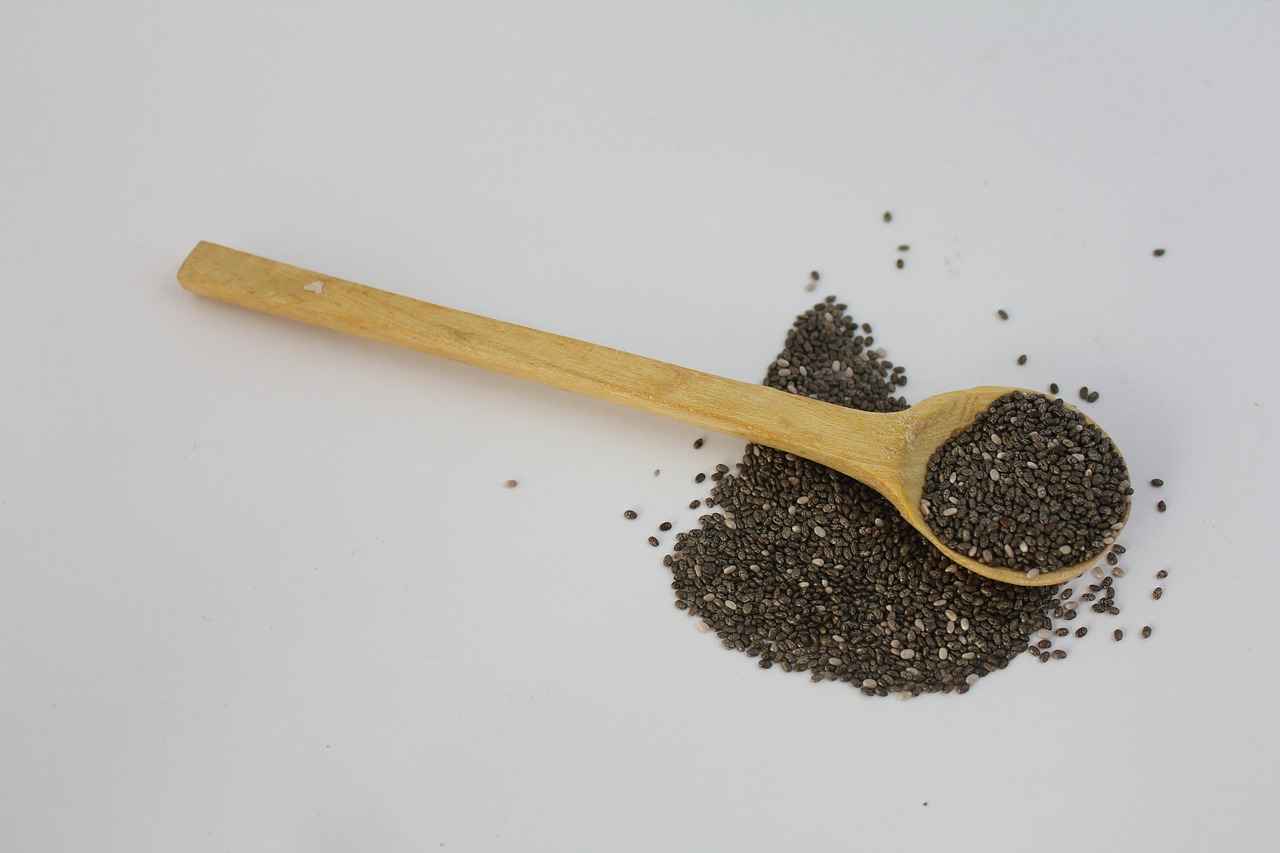
How to Incorporate Chia Seeds into Your Diet?
Incorporating chia seeds into your diet is not only simple but also a delightful way to boost your nutritional intake. These tiny seeds are incredibly versatile and can be easily added to a variety of meals and snacks. Below are some practical ideas for incorporating chia seeds into your daily routine.
One of the easiest ways to enjoy chia seeds is by adding them to smoothies. They can enhance the texture and nutritional value of your drink. Simply blend your favorite fruits and vegetables with a tablespoon of chia seeds. The seeds will absorb liquid, creating a creamy consistency that makes your smoothie more filling and satisfying.
Add a tablespoon of chia seeds to your morning yogurt for an extra boost of fiber and protein. This combination not only enhances the taste but also provides a satisfying crunch. You can mix in fruits, nuts, or honey for added flavor and nutrition.
For a nutritious breakfast, sprinkle chia seeds into your oatmeal. They can be added either before or after cooking. When cooked, chia seeds expand and create a gel-like texture that complements the creaminess of oatmeal. This combination is perfect for keeping you full until lunchtime.
Chia seeds can also be incorporated into baked goods like muffins, bread, and pancakes. They can replace eggs in vegan recipes when mixed with water, creating a binding agent. You can also sprinkle them on top of baked items for added texture and nutrition.
Another popular way to enjoy chia seeds is by making chia pudding. Combine chia seeds with your choice of milk (dairy or plant-based) and let them soak overnight. In the morning, you’ll have a delicious and nutritious pudding that can be topped with fruits, nuts, or granola.
For a crunchy addition to your salads, sprinkle some chia seeds on top. They add a nice texture and boost the nutritional profile of your meal. You can also mix them into dressings for added health benefits.
Consider making homemade energy bars with chia seeds. Combine oats, nut butter, honey, and chia seeds to create a nutritious snack that’s perfect for on-the-go energy. These bars are not only healthy but also easy to make and customize to your taste.
Finally, chia seeds can be added to various beverages, including water, juices, or herbal teas. They can transform a simple drink into a nutritious powerhouse. Just remember to let the seeds soak for a few minutes to allow them to expand.
In summary, incorporating chia seeds into your diet is straightforward and can enhance the flavor and health benefits of your meals. From smoothies to baked goods, the options are endless. By experimenting with different recipes and combinations, you can easily enjoy the numerous health benefits that chia seeds have to offer.
What Are Some Recipes Using Chia Seeds?
Chia seeds are not only packed with nutrients but also incredibly versatile, making them a fantastic addition to a variety of recipes. Here are some delicious and nutritious ways to incorporate chia seeds into your meals:
Chia pudding is a popular choice for breakfast or dessert. To make this treat, simply mix 3 tablespoons of chia seeds with 1 cup of your favorite milk (dairy or plant-based). Add a sweetener like honey or maple syrup, and let it sit in the fridge for at least 2 hours or overnight. The seeds will absorb the liquid and create a creamy, pudding-like consistency. Top with fruits, nuts, or granola for added flavor and texture.
Chia seeds can easily be added to your smoothies for an extra boost of nutrition. Blend together your choice of fruits, vegetables, and a liquid base, then add 1 tablespoon of chia seeds. This not only enhances the nutritional value but also provides a thicker texture. Some popular combinations include:
- Banana, spinach, and almond milk
- Mixed berries with yogurt
- Mango and coconut water
Making your own energy bars is a great way to ensure you have a healthy snack on hand. Combine 1 cup of oats, 1/2 cup of nut butter, 1/4 cup of honey, and 1/4 cup of chia seeds. Mix well, press into a lined baking dish, and refrigerate until firm. Cut into bars and enjoy a nutritious snack that’s perfect for busy days.
Create a quick and healthy chia seed jam by mashing 2 cups of your favorite berries and mixing in 2 tablespoons of chia seeds and a sweetener to taste. Let the mixture sit for about 30 minutes to thicken. This jam is perfect for spreading on toast or adding to yogurt.
Chia seeds can also be sprinkled on salads for added crunch and nutrition. A simple dressing can be made by whisking together olive oil, lemon juice, and 1 tablespoon of chia seeds. Let it sit for a few minutes to allow the seeds to absorb some of the dressing, enhancing the flavor.
For a nutritious breakfast, try chia seed pancakes. Combine 1 cup of flour, 2 tablespoons of chia seeds, 1 tablespoon of baking powder, and a pinch of salt. Mix in 1 cup of milk and 1 egg (or a flaxseed egg for a vegan option). Cook on a griddle until golden brown. Serve with fresh fruit or maple syrup.
Incorporating chia seeds into your diet is not only easy but also incredibly rewarding. These recipes provide a range of options for breakfast, snacks, and meals, ensuring you enjoy the numerous health benefits that chia seeds offer.
Can You Eat Chia Seeds Raw?
Chia seeds have become a popular superfood in recent years, celebrated for their impressive nutritional profile and versatility in various dishes. A common question among health enthusiasts is whether these tiny seeds can be consumed raw. The answer is yes, chia seeds can be eaten raw, but there are important considerations to keep in mind for optimal digestion and nutrient absorption.
Chia seeds are packed with essential nutrients, including omega-3 fatty acids, fiber, protein, and various vitamins and minerals. Their high fiber content can aid in digestion, but consuming them without proper preparation may lead to digestive discomfort for some individuals.
While you can eat chia seeds raw, soaking them in liquid is highly recommended. This process not only improves digestion but also significantly enhances nutrient absorption. When chia seeds are soaked, they absorb liquid and swell, forming a gel-like consistency. This gel not only makes them easier to digest but also adds a unique texture to various dishes.
- Basic Soaking Method: Combine 1 tablespoon of chia seeds with 3 tablespoons of water or your choice of liquid. Stir well and let it sit for about 15-30 minutes until the seeds have absorbed the liquid and formed a gel.
- Overnight Soaking: For convenience, you can soak chia seeds overnight in the refrigerator. This method allows for easy incorporation into your morning meals.
Soaked chia seeds can be added to a variety of dishes, enhancing their nutritional value. Here are some popular ways to incorporate them:
- Add them to smoothies for a nutrient boost.
- Mix them into yogurt or oatmeal for added texture and fiber.
- Use them as an egg substitute in baking by mixing soaked chia seeds with water.
While chia seeds are generally safe for most people, consuming them raw without soaking can lead to digestive issues. The seeds can absorb water in the digestive tract, potentially causing bloating or discomfort. Therefore, it is crucial to ensure adequate hydration when consuming chia seeds in their raw form.
In summary, while you can eat chia seeds raw, soaking them is the preferred method for enhancing digestion and nutrient absorption. The gel-like texture that forms when soaked not only improves digestibility but also adds a delightful element to your meals. Whether you choose to incorporate them into smoothies, baked goods, or breakfast bowls, soaking chia seeds is a simple yet effective way to maximize their health benefits.
Frequently Asked Questions
- What is the ideal serving size for chia seeds?
The recommended serving size for chia seeds is about 1-2 tablespoons per day. This amount allows you to enjoy their health benefits without the risk of overconsumption.
- Can I eat chia seeds without soaking them?
Yes, you can eat chia seeds raw, but soaking them in liquid is advisable. Soaking improves digestion and helps your body absorb the nutrients better, plus it gives them a fun gel-like texture!
- What are the health benefits of chia seeds?
Chia seeds are packed with nutrients! They can boost digestion, support heart health, and even help with weight management by keeping you feeling full longer.
- What happens if I consume too many chia seeds?
Overindulging in chia seeds can lead to digestive issues like bloating and gas. It’s best to stick to the recommended serving size to avoid these uncomfortable side effects.
- How can I incorporate chia seeds into my meals?
Incorporating chia seeds into your diet is super easy! You can add them to smoothies, yogurt, oatmeal, or even use them in baking. They enhance both the nutritional value and texture of your meals!




